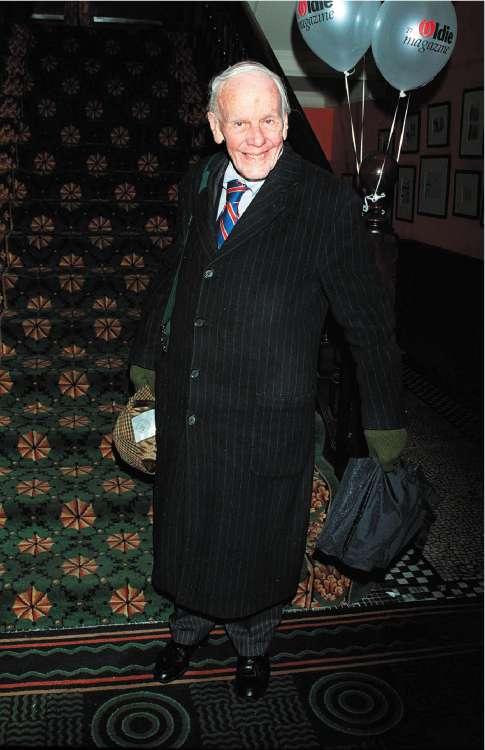Revealed: Deedes' damning view of the Barclay brothers

Your support helps us to tell the story
From reproductive rights to climate change to Big Tech, The Independent is on the ground when the story is developing. Whether it's investigating the financials of Elon Musk's pro-Trump PAC or producing our latest documentary, 'The A Word', which shines a light on the American women fighting for reproductive rights, we know how important it is to parse out the facts from the messaging.
At such a critical moment in US history, we need reporters on the ground. Your donation allows us to keep sending journalists to speak to both sides of the story.
The Independent is trusted by Americans across the entire political spectrum. And unlike many other quality news outlets, we choose not to lock Americans out of our reporting and analysis with paywalls. We believe quality journalism should be available to everyone, paid for by those who can afford it.
Your support makes all the difference.The late Lord Deedes has launched a vitriolic attack from beyond the grave on the current owners of The Daily Telegraph, where he spent 12 years as editor. Deedes, who was also a former Conservative cabinet minister, died in August last year, aged 94, still employed by the paper. Yet he was so disillusioned following the arrival in 2004 of the reclusive Barclay brothers, Sir David and Sir Frederick, as owners, that he considered resigning, believing the new regime to be "a stinking mob" and "bullying".
The detailed broadside appears in Stephen Robinson's biography, The Remarkable Lives of Bill Deedes, to be published on 27 March.
In a memo passed to Robinson with instructions for disclosure only after his funeral, Deedes describes how he and colleagues came "to doubt whether the Telegraph and the Barclays were compatible". The journalist writes witheringly of the Barclays' swingeing staff cuts, recruitment of executives from the Daily Mail and perceived drift downmarket. "This was a newspaper they were ready to pay £660m for but it was being produced by an unsatisfactory staff," he noted, with measured sarcasm. "Not a word of encouragement or praise came the way of the journalists who produced this high-value newspaper, though reason suggests they must have had something to do with what the Barclays had paid."
Deedes saw the need for innovation, having resisted the print unions in the 1980s. But he objected to what he saw as the erosion of values – personified by the Barclays' chief executive Murdoch MacLennan – and initial hostility to David Cameron. "The intention to change the nature of the Telegraph into something more profitable had to be shielded from readers who loved it most for its unprofitable qualities which they saw as a stand against the vulgarity of the red tops," he wrote. He felt he was kept on only "as a somewhat shabby Daily Telegraph mascot" to reassure readers and "serve as part of the cover plan".
Deedes was first employed by the paper in 1937, before fighting in the Second World War and serving as a minister under Churchill, Macmillan and Douglas-Home. He rejoined the Telegraph in 1974 as editor, later taking the role of a roving commentator. He inspired the character of the journalist William Boot in Evelyn Waugh's 1938 novel Scoop and was later the recipient of Private Eye's spoof Denis Thatcher "Dear Bill" letters.
Deedes kept his concerns to a small circle of friends, filing his final column the week before he died. Just twice did caution desert him. In September 2006, he met the Telegraph's acting editor, John Bryant, for the second occasion. The old man, emboldened by two whiskies, did not recognise the new helmsman. Only later did Deedes reveal to his daughter he had blasted the Barclays: "I may have been a bit pissed. I told him they were mad."
Another time, a new executive, Lawrence Sear, in from the Mail and nicknamed "Saddam" for his moustache, rushed to greet "a Telegraph legend". As Sear walked off, Deedes turned, "with a look of theatrical horror", and whispered, "A palpable shit!"
The Barclays were warned that Deedes might quit. Sir David's son, Aidan Barclay, invited him to lunch at The Ritz, but to the nonagenarian's displeasure, wine was not served. A second lunch was organised. He again left the table unimpressed, yet unwilling to leave his job. It is worth recalling Deedes' comment on his previous proprietor, the imprisoned Canadian tycoon Conrad Black: "The biggest bore on earth". A management source insists: "Bill was a loyal and loved member of the Telegraph to the end."
The biography also discloses details of Deedes' charged but non-physical friendship with Victoria Combe, a reporter 53 years his junior, with whom he travelled the world on assignments.
Join our commenting forum
Join thought-provoking conversations, follow other Independent readers and see their replies
Comments